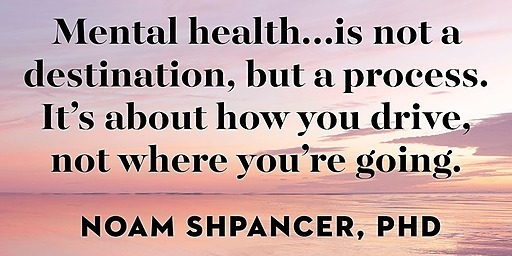When you’re experiencing chronic pain combined with mental health issues, finding a solution to manage them is essential.
If it seems like you’re alone in dealing with physical and emotional pain, you’re not. About 50 million US adults have chronic pain, according to the Centers for Disease Control and Prevention, and 20 million have the type of pain that’s so intense or persistent, it interferes with work or life on a near-daily basis.
Feelings of depression and anxiety are common, too. Chronic pain and mental health are inextricably associated, says Nilanjana Bose, M.D., a rheumatologist at Memorial Hermann Southeast Hospital in Houston. Anxiety and depression can worsen chronic pain, and pain can exacerbate mental health issues like depression, anxiety, and panic disorders, and even the inability to sleep.
Chronic pain can change how the brain processes pain signals, like wires that become crossed. Something similar happens in the brain with depression, Dr. Rajneesh adds.
When people experience both depression and chronic pain, they often will only share what is happening physically, which means they aren’t being treated for their mental health symptoms. But it’s just as important to recognize and get help for symptoms that signal depression or anxiety.
Symptoms of depression include:
- Feelings of sadness or hopelessness
- Feelings of guilt or worthlessness
- Losing interest in hobbies and activities
- Gaining or losing weight
- Being unable to sleep or sleeping excessively
- A number of unexplained physical feelings, including pain, fatigue, and digestive issues
- Recurrent thoughts of death or suicide
Symptoms of anxiety include:
- Feeling tense, restless, worried, or irritated
- Having trouble focusing
- Not being able to sleep
- Experiencing physical changes like a rise in blood pressure
Mental Health Treatment for Chronic Pain
Because there are so many different contributors to pain, it can take time to find what works for you. Sometimes, the pain just needs to be managed enough for you to take part in daily life and keep doing what makes you, well, you.
Finding a good provider is key. That means a doctor who believes in you and will work on treatment even if he or she is not able to see where your pain is coming from, Buday says. What matters is that if you say it’s there, it’s there.
Therapy
One answer is to find a pain psychologist, someone who specializes in treating people experiencing chronic pain, and then participating in either individual or group therapy.
Self-Care and Lifestyle Strategies
Experts say it is also possible to make a big difference in how you feel physically and emotionally with these steps:
- Find and participate in an activity that’s meaningful to you. Pace yourself. Take breaks when needed.
- Stay socially engaged. Social isolation can worsen depression and chronic pain.
- Find adaptations for activities that have the most value to you. Maybe you can’t play touch football with your youngster, but you can still enjoy time together in other ways that work for you.
- Use a meditation app, such as Calm or Headspace, and try stress management techniques like yoga and deep breathing.
- Follow an anti-inflammation diet, which can help with chronic pain and fatigue. This involves limiting processed foods, cured and red meat, refined starches, sugars, and sodas. At the same time, up your intake of foods rich in antioxidants, mostly fruits and veggies, which can replenish the brain’s neurotransmitters.
- Try low-impact aerobic exercise, which can boost endorphins, relieve pain, restore muscle tone, and increase your sense of well-being.
- Get better sleep. Sleep plays an important role in modulating pain and recharging the body. Follow a sleep routine that includes taking a bath, doing yoga, or meditating before getting into bed. Keep bright lights out of your bedroom and turn off all screens at least an hour earlier.
- Get a pet, if you can. Pet therapy provides companionship, and can also get you out of the house, helping with isolation.
*Get ready for doctor visits.
- **Advocacy can be empowering. You can volunteer, raise awareness, or participate in a clinical trial. **
- Have Those Hard Conversations You have a life outside of your pain, and it’s important to keep up with what’s important to you. Don’t withdraw because of the struggle. Instead, take clear action.
Cara Roberts Murez - Health Writer













